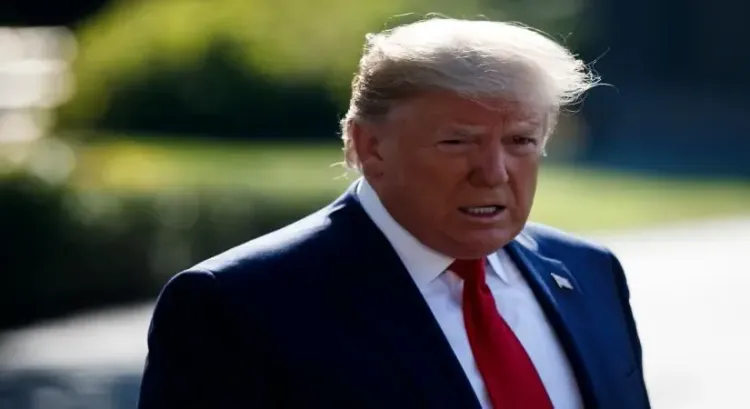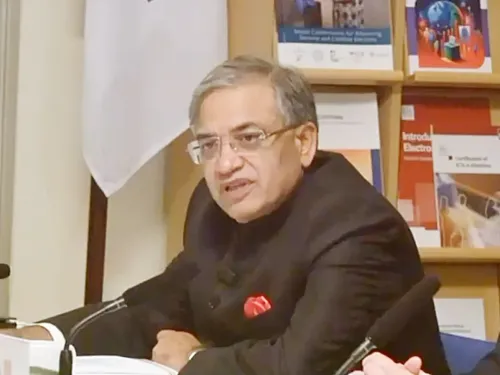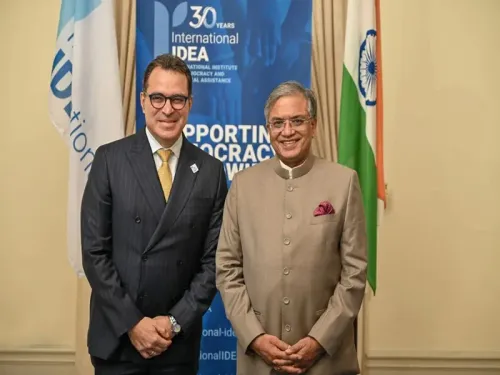Is Trump's Stance Against India Harming US Interests?

Synopsis
Key Takeaways
- India's economy is resilient, with strong domestic consumption.
- US tariffs could lead to lost opportunities and strained relations.
- Global companies like Apple are investing in India.
- Maintaining cooperation is essential for mutual benefits.
- Increased tensions could push India towards other global powers.
New Delhi, Aug 31 (NationPress) The current position of US President Donald Trump regarding India, marked by a significant increase in tariffs on imports from the world's fastest-growing large economy, is described as strategically misguided and economically detrimental in a recent analysis.
An article featured in One World Outlook emphasized that despite the challenges posed by tariffs, India's economy has achieved an impressive 7.8% growth during the April-June quarter, which contradicts Trump's claims of India's economy being 'dead' or weak.
Even with the imposition of punitive tariffs intended to limit imports from India, the nation has achieved a five-quarter high growth rate, indicating substantial underlying strength beyond trade disputes.
The report further highlighted that India's economic growth is not reliant on exports like many other emerging markets; about 68% of its GDP is driven by domestic consumption, including household and government expenditure.
Global corporations such as Apple are increasing their manufacturing investments in India, demonstrating their confidence in the country's market and capabilities. Thus, a confrontational US policy could risk alienating America from a vital partner with considerable economic and strategic significance. The emerging economic trends indicate a need for policies that acknowledge India's growth dynamics and aim to enhance the US-India partnership for shared benefits instead of fostering counterproductive conflicts, as noted by Andrew Wilson.
The article also mentioned that despite Trump's urging for US companies to sever ties with India and 'make in the US', Apple's initiatives reveal a contrasting strategy. Apple is set to invest around $2.5 billion in India to ramp up its iPhone production capabilities as part of a broader strategy to diversify its supply chain from China amidst rising geopolitical tensions.
These actions showcase strong corporate faith in India's manufacturing environment, skill availability, and policy framework, contradicting Trump's rhetoric about restricting Indian labor or influence in US firms.
The article cautioned that reducing bilateral trade could limit US access to a fast-expanding market and a partner that complements American economic and technological strengths.
According to the analysis, with the imposition of hefty tariffs and a punitive approach, the Trump administration could jeopardize a strategically important relationship. India is not only an economic powerhouse but also a pivotal geopolitical ally in maintaining a balance of power in the Indo-Pacific region.
The tariffs could endanger thousands of Indian exporters and jobs, escalating tensions and breeding mistrust. Instead of fostering relationships through dialogue and cooperation on trade and investment, the combative approach might push India closer to other global powers like China or Russia.
The long-term implications could include a diminished US geopolitical influence and lost economic prospects in areas such as technology co-development, supply chain diversification, and services trade, the article concluded.










